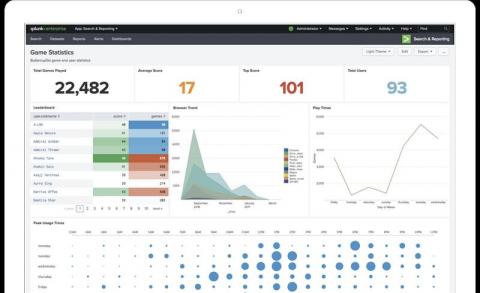Security | Threat Detection | Cyberattacks | DevSecOps | Compliance
Monitoring
The Definitive Guide to Travel APIs
Cutting-edge applications in the travel industry heavily rely on third-party APIs and web services. Take TripActions: the corporate travel management software connects to the United Airlines API, the Southwest Airlines API, and the Lufthansa Group API to import their content like flight schedules and fares. Likewise, it connects to human resources APIs (Namely, BambooHR), finance APIs (Expensify, Spendesk), travel services APIs (VisaHQ, Stasher), and more.
Understanding Ecommerce APIs
If you work in the ecommerce industry, you know that every part of its value chain has been eaten by software: from product sourcing, inventory management, warehousing, online shopping, marketing operations, order management, payment processing, shipping, up to tax management. Today’s state-of-the-art ecommerce software is connected to countless other services. How? Through APIs. Take a random online store using Shopify, which empowers over 1,000,000 merchants in 175 countries.
Stop Wasting Your Time and Money with a "Checkbox" SCM Solution
By now, we know a lot about secure configuration management (SCM). We know the way it works, the integral processes of which it consists, the areas of your IT infrastructure that it can help secure as well as the different types of best practice frameworks and regulatory compliance standards with which it can help you to maintain compliance. All we’re missing is how to procure and deploy an effective SCM solution.
Best Practices for FinTech APIs
How many third-party APIs is your application consuming? All modern FinTech companies rely on external APIs to run their business. Take Robinhood for instance: the famous investment application is using the Plaid API to connect to its users’ bank accounts, the Xignite API to get financial data, and the Galileo API to process payments. That is only the beginning. The essential parts of their service could not run without consuming third-party APIs.
The Importance of Request Timeouts
Networks are unreliable. Third-party dependencies, like APIs, are unreliable. This is why we build resiliency into our applications and services. Most prep work is focused around HTTP requests, but an aspect of them that is often overlooked is timeouts.
Monitor Alcide kAudit logs with Datadog
Kubernetes audit logs contain detailed information about every request to the Kubernetes API server and are critical to detecting misconfigurations and vulnerabilities in your clusters. But because even a small Kubernetes environment can rapidly generate lots of audit logs, it’s very difficult to manually analyze them.
Smashing Out Cash-Outs: Tips to protect against your next ATM attack
When It Comes to Security of the Platform, We Mean Business. Here's How.
At Splunk, we understand that a secure platform is a trustworthy one. We strive to implement a protected foundation for our customers to turn data into action, and part of that effort is giving you more frequent insight into the security enhancements that we’ve made to the platform. In this blog series, we’ll share the latest enhancements to Splunk Enterprise, review our security features in depth, and explain why these updates are important for you and your organization.
Track Employees' Online Activity With Computer Monitoring Software
With so many employees worldwide working from home, can you be certain they are actually working productively? Is some of their time working from home being spent on social media, looking for other jobs, or taking care of their children? To maintain high performance and productivity, it’s important to keep an eye on your employees’ online activity with Veriato’s computer monitoring software.








